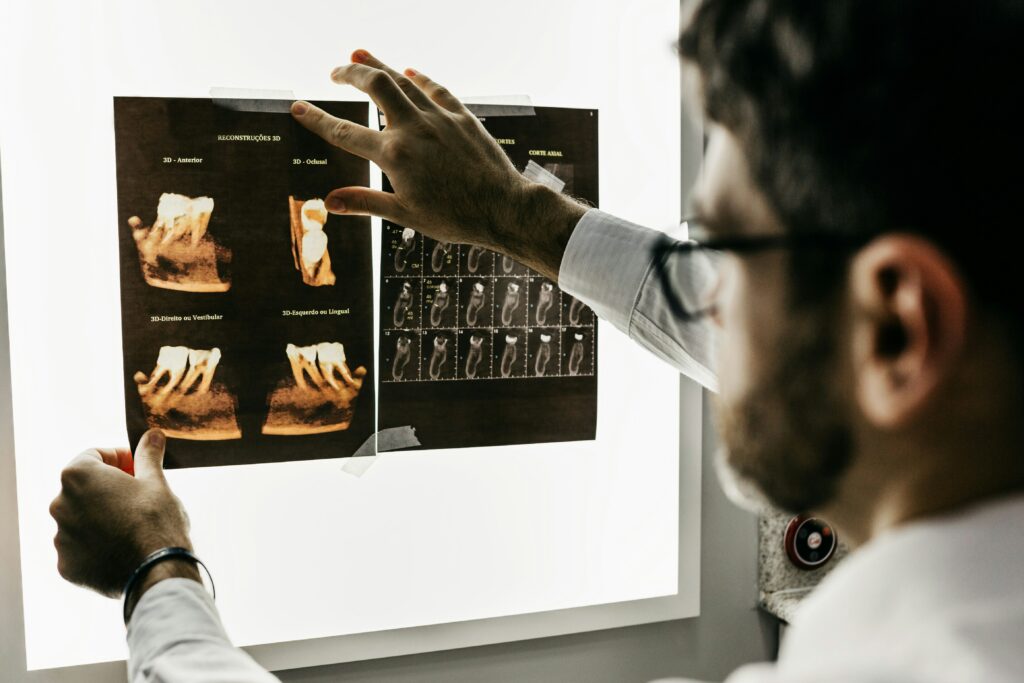Dentists play a crucial role in promoting oral health and wellness by diagnosing, preventing, and treating a wide range of dental conditions. Beyond the familiar image of a dentist conducting routine check-ups and cleanings, the profession encompasses a diverse array of responsibilities and specialties. In this article, we’ll delve into the multifaceted role of dentists and the various tasks they perform to ensure optimal dental care for patients.
Diagnostic Assessment
One of the primary responsibilities of dentists is to conduct comprehensive diagnostic assessments of patients’ oral health. This involves examining the teeth, gums, jaws, and surrounding oral structures to identify signs of dental disease, abnormalities, or other oral health issues. Using specialized instruments and diagnostic tools such as dental X-rays, dentists can detect conditions such as cavities, gum disease, oral cancer, and temporomandibular joint (TMJ) disorders.
Treatment Planning and Patient Education
Based on their diagnostic findings, dentists develop individualized treatment plans tailored to each patient’s needs and goals. They discuss treatment options, risks, benefits, and alternatives with patients, empowering them to make informed decisions about their oral health care. Dentists also provide comprehensive patient education on proper oral hygiene practices, dietary recommendations, and lifestyle factors that impact dental health, promoting preventive care and disease management.
Restorative Dentistry
Dentists perform a variety of restorative procedures to repair damaged or decayed teeth, restore function, and enhance aesthetics. This includes procedures such as dental fillings to treat cavities, crowns and bridges to restore missing or damaged teeth, and dental implants to replace missing teeth permanently. Additionally, dentists may perform root canal therapy to treat infected or inflamed tooth pulp and preserve the natural tooth structure.
Preventive Care and Maintenance
Preventive care is a cornerstone of dentistry, aimed at preventing dental problems before they occur and maintaining optimal oral health. Dentists provide preventive services such as professional cleanings, fluoride treatments, dental sealants, and oral cancer screenings to help patients maintain healthy teeth and gums. They also emphasize the importance of regular dental check-ups and hygiene practices to prevent dental disease and promote long-term oral health.
Orthodontics and Prosthodontics
Some dentists specialize in orthodontics, focusing on the diagnosis and treatment of misaligned teeth and malocclusions. They may prescribe orthodontic appliances such as braces, aligners, or retainers to straighten teeth, correct bite issues, and improve facial aesthetics. Prosthodontists specialize in the restoration and replacement of missing teeth and oral structures using prosthetic devices such as dentures, bridges, and implants to restore function, aesthetics, and oral health.
Oral Surgery and Dental Implantology
Dentists with advanced training may perform oral surgical procedures to address complex dental issues, such as impacted wisdom teeth, dental extractions, and surgical treatment of oral pathology. Additionally, some dentists specialize in dental implantology, placing and restoring dental implants to replace missing teeth and restore oral function and aesthetics. Oral surgeons collaborate closely with other dental specialists and healthcare providers to deliver comprehensive care to patients.
Emergency Dental Care
Dentists also provide emergency dental care to patients experiencing acute dental problems or injuries. This may include treating dental trauma, managing dental infections, and alleviating dental pain and discomfort. Dentists must be prepared to address emergencies promptly, provide immediate relief, and initiate appropriate treatment to prevent further complications and preserve oral health.
Periodontal Therapy
Dentists diagnose and treat gum disease (periodontal disease) through non-surgical and surgical periodontal therapy, including scaling and root planing, periodontal surgery, and antimicrobial therapy. Managing gum disease is crucial for preserving gum and bone health and preventing tooth loss.
Cosmetic Dentistry
Dentists offer cosmetic dental procedures to enhance the appearance of patients’ smiles and boost their self-confidence. Cosmetic treatments may include teeth whitening, dental bonding, veneers, and gum contouring to improve the color, shape, alignment, and overall aesthetics of teeth.
Pediatric Dentistry
Pediatric dentists specialize in providing dental care to children from infancy through adolescence. They focus on preventive care, early intervention, and education to promote healthy dental habits and ensure optimal oral health development in children.
Geriatric Dentistry
Dentists may specialize in geriatric dentistry, addressing the unique oral health needs and challenges of older adults. They provide comprehensive dental care tailored to the specific needs of aging patients, including preventive care, treatment of age-related dental conditions, and management of oral health issues associated with systemic diseases and medications.
Practice Administration
Dentists who own or manage dental practices are responsible for overseeing practice operations, managing finances, and ensuring regulatory compliance. Practice administrators handle staffing, scheduling, billing, insurance claims, marketing, and patient communication to ensure the smooth and efficient operation of the dental office.
In conclusion, dentists play a multifaceted role in promoting oral health and wellness through diagnostic assessment, treatment planning, preventive care, restorative procedures, and specialty services. By providing comprehensive dental care, educating patients, and collaborating with other healthcare professionals, dentists contribute to improving patients’ quality of life and overall well-being.





